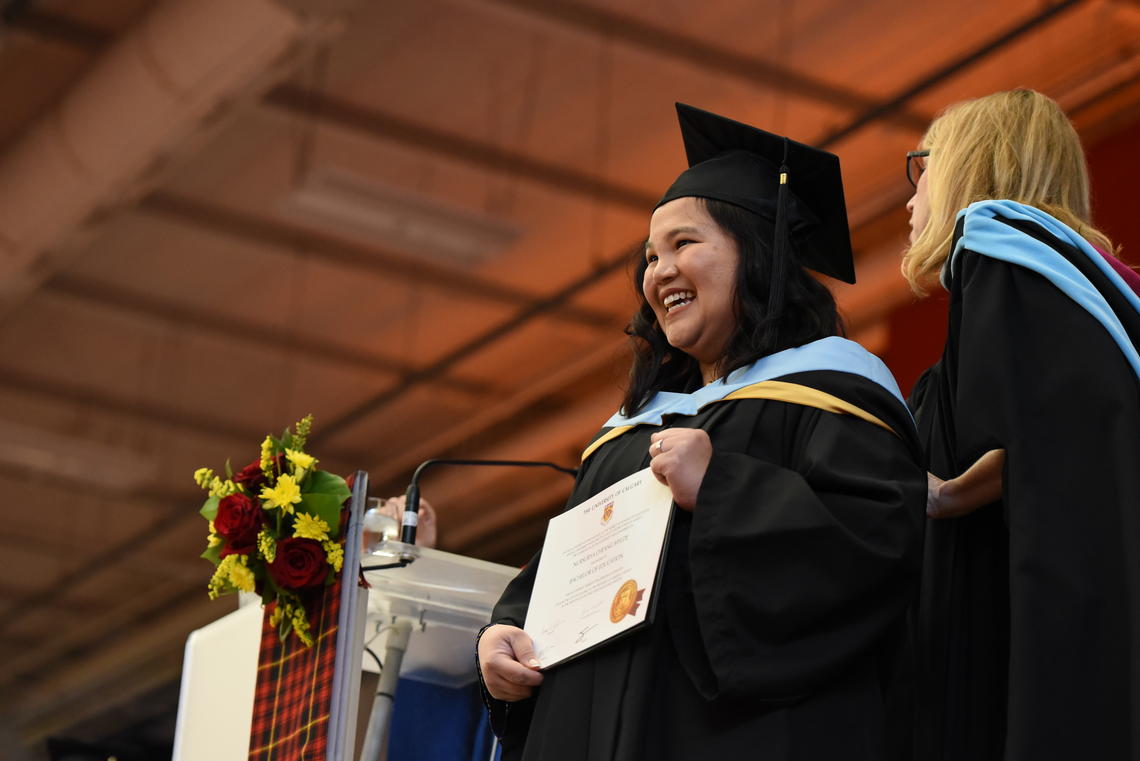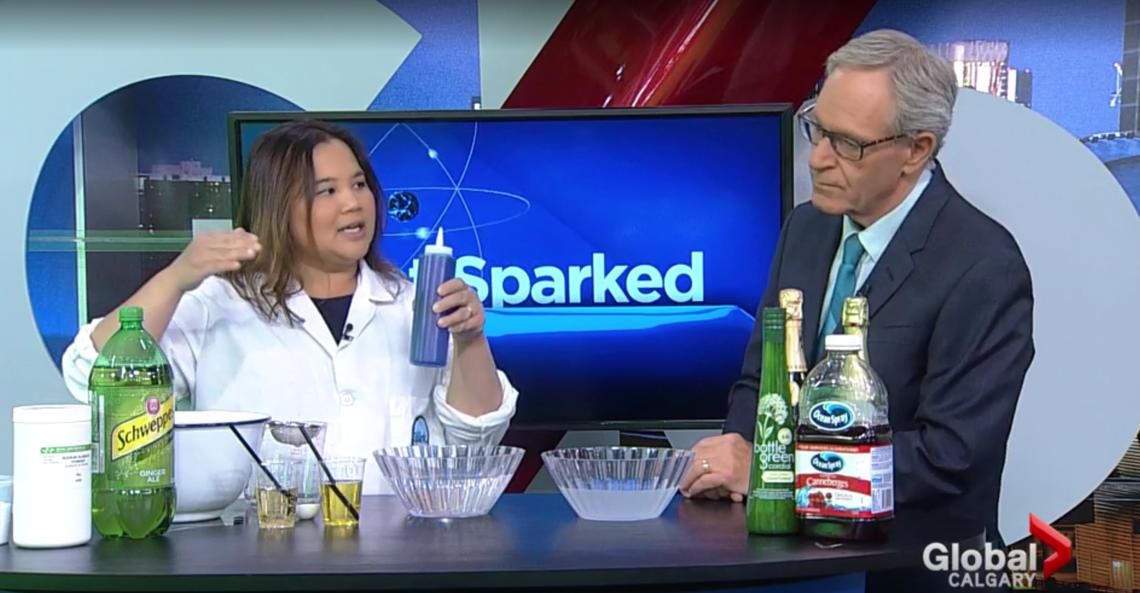June 19, 2019
Class of 2019: Werklund grad brings wealth of international experience to the classroom

Sue Mylde, who has a degree from the London School of Economics, obtained a Bachelor of Education.
Mary Kate MacIsaac, Werklund School of Education
As a child star in Singapore, a graduate student in London, and as a science enthusiast performing experiments on stage and on Global News, Sue Mylde has travelled a unique and diverse path before and during her experience at the University of Calgary. Last week, she graduated from the Werklund School of Education with a Bachelor of Education degree. Before convocation, she had already signed a contract as a full-time teacher in a technology integrator role at a local elementary school.
“Growing up, I was mesmerized by the romanticized image of teachers in literature or the big screen,” Mylde admits. “But it is my real-life experiences which led me to the steps of education.”
Starting in television when she was five, Mylde is a natural in front of the audience. “I loved talking and performing — so my mother signed me up for a Children’s Television Workshop in my native Singapore.” She was on screen for three years, as a child anchor for a local TV show.
After receiving a Master of Science degree in science communication at Imperial College London, Mylde and her husband, Chris, sought out international challenges and found opportunities to work at first in Toronto, then Oslo and then Aberdeen. They have always loved Canada and returned to settle in Calgary to raise their two children. Soon she was combining her love of performance with a passion for hands-on learning, sharing live science demonstrations and experiments at first on stage at TELUS Spark, Calgary’s science centre, and then on a weekly Global TV spot called Get Sparked.
In a digital age when children are spending multiple hours in front of screens, the new graduate sees value in exploring education issues related to hands-on learning, literacy, and creativity. She addressed this in her talk The Forgotten Power of Hands-On Learning at TEDx YYC last year. Mylde is also involved as a research assistant and facilitator for the Play and Learning Think Tank, a Werklund School and SHHRC Connections Project, which enables her to deepen her work in this area. She will also be presenting at the Alberta Technology Leaders in Education Convergence 2019 Conference in October this year.

A child star in her native Singapore, in Calgary Mylde now does live science demonstrations.
Global News
Mylde does not see education as limited to either technology-based learning or hands-on. There can and should be both. What matters most is that through these tools, teachers are helping students recognize their own agency.
“In an increasingly polarized world, education offers a powerful vehicle to inform and empower youth engagement. I want to play a part in influencing the awareness of our students to issues bigger than themselves through compassion and global citizenship.” Mylde does this through bringing creativity and innovation to the classroom in a role that is the culmination of her international education and professional background.
“My experience with different schools and education systems across the world has assured me of one thing: the teacher is a huge determinant of student success,” she says. Mylde cites many teachers who have inspired her to serve in the community, to encourage different perspectives, and to always make a difference.
Mylde, who holds a degree from the London School of Economics, still sets her studies at the Werklund School apart from her other degrees and accomplishments. “The education degree is exciting because it signifies not just a professional qualification earned, but also a responsibility bestowed,” Mylde says thoughtfully. “To answer the call to teaching means I choose to play a bigger role, and have a greater responsibility for our common future.”
Above all, Mylde says she has found her purpose in teaching children about the dynamic nature of good citizenship — which in today’s world involves not only critical thinking, but also responsibility to each other.
“Whether we choose to teach in a K-12 classroom, or get involved with advocacy for youth, or even to impact the conversation on education, we have the power to influence, and to make a difference," she says. "We can speak for those who have no voice, but we can also empower those in our charge to use their voices. How we exercise our influence matters.”
